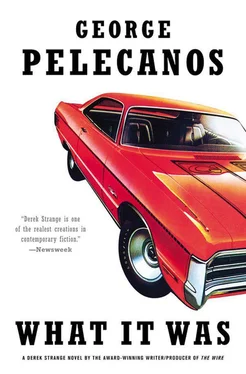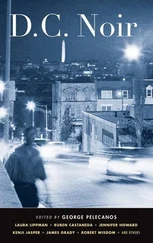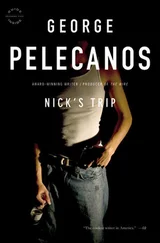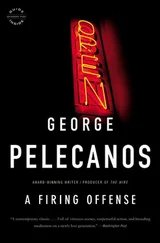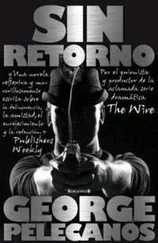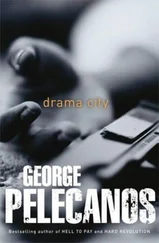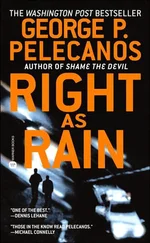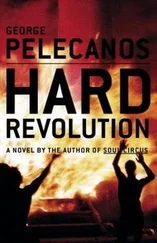George Pelecanos - What It Was
Здесь есть возможность читать онлайн «George Pelecanos - What It Was» весь текст электронной книги совершенно бесплатно (целиком полную версию без сокращений). В некоторых случаях можно слушать аудио, скачать через торрент в формате fb2 и присутствует краткое содержание. Жанр: Криминальный детектив, на английском языке. Описание произведения, (предисловие) а так же отзывы посетителей доступны на портале библиотеки ЛибКат.
- Название:What It Was
- Автор:
- Жанр:
- Год:неизвестен
- ISBN:нет данных
- Рейтинг книги:5 / 5. Голосов: 1
-
Избранное:Добавить в избранное
- Отзывы:
-
Ваша оценка:
- 100
- 1
- 2
- 3
- 4
- 5
What It Was: краткое содержание, описание и аннотация
Предлагаем к чтению аннотацию, описание, краткое содержание или предисловие (зависит от того, что написал сам автор книги «What It Was»). Если вы не нашли необходимую информацию о книге — напишите в комментариях, мы постараемся отыскать её.
What It Was — читать онлайн бесплатно полную книгу (весь текст) целиком
Ниже представлен текст книги, разбитый по страницам. Система сохранения места последней прочитанной страницы, позволяет с удобством читать онлайн бесплатно книгу «What It Was», без необходимости каждый раз заново искать на чём Вы остановились. Поставьте закладку, и сможете в любой момент перейти на страницу, на которой закончили чтение.
Интервал:
Закладка:
Mid-street, under the shade of a government oak, a boy buffed the milky film off a current-year Cadillac that he had washed and waxed. An older man sat in a folding chair in the same patch of shade, having a cigar while he watched the boy work.
“He up in that semidetached on the right,” said Jefferson. “Ward visits the same woman, same day, every week about this time. Has that boy shine up his Caddy while he hits that thing.”
“Kinda early for that, isn’t it?”
“Man likes his morning glory.”
“You do your homework, Fonzo.”
“I try to.”
“How long we got to sit here?”
“Boy’s near finished. That means Ward about to come out.”
Jones dragged on a cigarette, then let his smoking-hand rest on the lip of the open passenger-side window. “They say he buys a new short every year.”
“Man’s got to do somethin with all that cash.”
“He spends plenty, but not all of it,” said Jefferson, studying the Eldorado as if looking at it in a dream. “That’s a sweet-ass car.”
Sylvester Ward’s latest had been purchased with cash. It was a triple-green coupe with an opera window, rear skirts, spoke wheels, and wide whitewalls. His vehicles were bought at Capitol Cadillac on 22nd Street in Northwest. He liked to say that he traded them in “when the ashtrays get full.” If it was an exaggeration, it was not much of one.
Ward, a rotund man in his early forties, came out of the duplex. He walked with confidence and had the easy gait of a man who carried his weight naturally. He wore a forest-green suit with white stitching on the lapels, a textured white shirt, white shoes, and a white belt. The outfit was a deliberate complement to his car. Ward was dark, mostly, with small patches of beige on his cheeks and forehead, and spots of beige and white all over the backs of his hands. He had been afflicted with a skin condition since childhood.
“I see why they call him Two-Tone,” said Jones.
“Look more like three to me,” said Jefferson.
“Let’s take him.”
They gathered their guns, slipped them under the tails of their shirts, got out of the Electra, and commenced to cross the street. Jones paused to crush his cigarette under one of his Flagg Brothers, then deep-dipped forward.
Ward took note of the low-rent strangers as he descendeas spod the concrete steps of the row home. He showed no fear if he felt it, and when he hit the sidewalk he continued on toward his Cadillac. There they all met, standing around the car in that tight atmosphere that said some kind of conflict was about to go down. The boy dropped the chamois cloth he held in his hand and took one step back. The older man gripped the arms of the folding chair and stared straight ahead.
“What you two want?” said Ward tiredly.
Jones lifted his shirttail and showed Ward the butt of his.45. The boy’s eyes widened and he felt his heart beat pleasantly in his chest. Nothing this exciting had ever happened to him and nothing would again. When he was a crushed and disappointed middle-aged man he would often bore his friends with the story of Red Jones, tall and proud, tight bells, tall stacks, big old Afro, who came up on him and his uncle, showed his heater, and took off numbers kingpin Sylvester Ward.
“You comin with us,” said Jones. “Right now.”
“Don’t you know who I am?” said Ward, his voice a husky match to his size.
“Matter of fact, we do.” Jefferson gave him a gold-toothed smile. “We ain’t about to take no poor motherfucker off the street.”
“Let’s go,” said Jones.
Ward gestured to the vehicle with incredulity. “What about my ride?”
“Leave it,” said Jefferson. “The boy can watch it.”
“Pay him for his time before you go,” said Jones. He gave the boy a short nod.
Ward peeled off some bills from a roll of cash he drew from his pants pocket before walking with Jones and Jefferson to the Electra. Jones got into the backseat with Ward, drew his gun, and held it loosely in his lap.
Jefferson settled in behind the wheel of his car and turned the ignition. Looking in the rearview mirror at Ward, he said, “You stay over in Shepherd Park, right?”
“Holly Street,” said Ward, just above a mumble.
Jefferson pulled away from the curb. “That’s a nice El D, Two-Tone. What you got in that, a six?”
“Shit,” said Ward. “That’s a five-hundred-cubic-inch big-block V-eight.”
“What do they call that color, ice-green, somethin?”
“ Willow- green. It’s new for this year.”
“Pretty,” said Jefferson.
That cut the conversation to nothing for a while. Jones drove south on New Hampshire, where he turned right onto Missouri Avenue and headed across town.
“Y’all kidnapping me,” said Ward, as if it had just come to mind. “You know that’s a capital crime.”
“So?” said Jones.
“I got rid of my wife, and my kids are full grown and gone. They got nary a nickel from me, case you tryin to hold me for ransom…”
“We don’t have the time for that,” said Jones. “And you ain’t all that important.”
Little more was said for the rest of the ride. Ward sat looking out the window, his hands in his ample lap, his lower lip thrust out like a hurt child’s. Sylvester Ward was not frightened, but a piece had been chipped off his pride.
Ward lived on one of the tree-and-flower-named streets of Shepherd Park, the northernmost neighborhood before the Maryland line, west of Georgia and east of 16th Street. Most recently, its residents had actively resisted blockbuster realtors who had preyed on the fears of whites in post-riot D.C. Here, middle- and upper-middle-class blacks and whites lived side by side, and sometimes they lived under the same roof. It was one of the few uptown, upscale areas friendly to interracial couples. At one time, Jews who owned nearby Georgia Avenue businesses couldn’t live in Shepherd Park. But that restriction, too, had been buried long ago with the other rotted corpses of the past.
When it came to women, Ward was tolerant running to liberal. He kept company with all kinds, but he was no political activist. He simply liked this area, with its brick and shingled single-family homes, large yards, shade trees, and flowery shrubs. He had paid cash for his house, as he did for everything he owned. He could have easily afforded a residence on the Black Gold Coast, down on North Portal Drive, with the professional, educated types, but he preferred to stay in Shepherd, which was nice but more down-home. He felt it was wise to remember where you came from and not pretend to be something you were not. The high branches of the tree die when the roots get cut. Like that.
Ward had been one of the city’s top numbers men for some time. He didn’t deal in ponies or the sports book. He had no knowledge of or interest in the drug or prostitution trades. He had come up in the policy game, where three-digit tickets could be bought for pocket change. He had runners all over the city; his employees were government messengers, dishwashers, janitors, and, in the old days, elevator operators. They were black men and they sold to all colors. They worked for a cut and were often tipped heavily by sentimental and superstitious winners. Above the runners were several men who kept the books and collected. The daily take, after the winning combination was paid out, was divided from small denominations and coin between Ward, his employees, and the New York Syndicate via a man in Baltimore whose nickname suggested royalty. It was claimed that there was no organized crime to speak of in D.C., and this was true in a sense, if one meant Mafia and Italian. But the Mob had long had their hands in the pockets of Washington’s criminal element. The out-of-town payoff money was said to be well spent, as it kept the Syndicate at arm’s length.
Читать дальшеИнтервал:
Закладка:
Похожие книги на «What It Was»
Представляем Вашему вниманию похожие книги на «What It Was» списком для выбора. Мы отобрали схожую по названию и смыслу литературу в надежде предоставить читателям больше вариантов отыскать новые, интересные, ещё непрочитанные произведения.
Обсуждение, отзывы о книге «What It Was» и просто собственные мнения читателей. Оставьте ваши комментарии, напишите, что Вы думаете о произведении, его смысле или главных героях. Укажите что конкретно понравилось, а что нет, и почему Вы так считаете.
